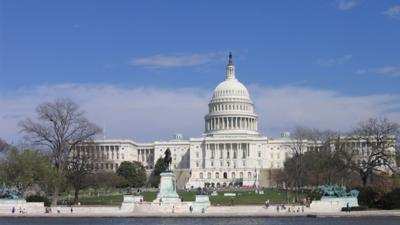Editorial Originally Appeared In The Hill
While the nation has been distracted by the highly publicized health care reform debate, another landmark bill is making its way through Congress, virtually unnoticed. That bill is H.R. 2997, also known as the 21st Century Aviation Innovation, Reform, and Reauthorization Act. Its purpose is to privatize control of the U.S. national airspace system – one of our nation’s most valuable assets.

In an editorial originally posted by The Hill and forwarded to Aero-News by GAMA, Garmin president and CEO Cliff Pemble, who has served in that capacity since January 2013, writes that House Transportation and Infrastructure Committee Chairman Bill Shuster (R-Pa.) believes that our air traffic control system is broken. Despite the FAA's sterling record of managing the busiest and most complex airspace system on the planet, supporters of privatization argue that the FAA has not been effective. Their proposed solution is to give away the FAA’s valuable resources -- paid for by taxpayers -- to a nonprofit corporation controlled by the airlines and special interests aligned with them, empowering them to manage the nation’s skies in a manner benefitting them the most.
The United States is a nation that depends on aviation. The size of its land mass and the diversity of its economy necessitates the efficient movement of people and goods over long distances, and to remote places. Airlines play a vital role in this mission by moving millions of people and billions of dollars worth of goods among approximately 500 major airports in the United States every day, but general aviation also plays a vital role in this mission. The industry provides access to over 5,000 airports in small communities across the nation, supports over one million high-paying American jobs, contributes over $219 billion to the nation’s economy and positively contributes to the nation’s trade balance.
Pemble writes that airlines understandably embrace the idea of privatization; H.R. 2997 establishes a board to oversee the new private corporation on which the airlines and their allies will hold a majority of the seats. General aviation will have a voice, too, but its influence will be less than half that of the airlines and their allies. Motivated by their near-term corporate priorities, airlines will allocate resources and regulate access to the nation’s airspace in a manner that benefits them the most.
The U.S. air traffic control system is not broken. The FAA currently provides fair access to the widest range of users around the globe in the most complex skies in the world, while operating at a near flawless level of service, with uncompromising safety. Almost every other country in the world uses U.S. developed technologies, procedures and standards in their air traffic and airspace systems. We are world leaders in every aspect of our system.
So, what’s the answer? Well, Congress could provide the FAA with protections from government shutdowns and arbitrary across-the-board cuts, and give the agency more flexibility in managing capital programs. More reliable funding and better management tools will ensure that modernization projects are completed on-time and on-budget. Once completed, there is no doubt our air traffic control system will remain the best in the world.
Aviation was born in the United States and rapidly developed into the amazing system of transportation it is today because of fair access to the nation’s airspace. Dismantling our current air traffic control system and placing it under the control of the airlines threatens jobs, the economy and fair access to the nation’s airspace. Congress should be running away from H.R. 2997, he said.
 SpaceX to Launch Inversion RAY Reentry Vehicle in Fall
SpaceX to Launch Inversion RAY Reentry Vehicle in Fall Aero-News: Quote of the Day (04.23.24)
Aero-News: Quote of the Day (04.23.24) Aero-News: Quote of the Day (04.20.24)
Aero-News: Quote of the Day (04.20.24) ANN's Daily Aero-Linx (04.20.24)
ANN's Daily Aero-Linx (04.20.24) Aero-News: Quote of the Day (04.21.24)
Aero-News: Quote of the Day (04.21.24)



